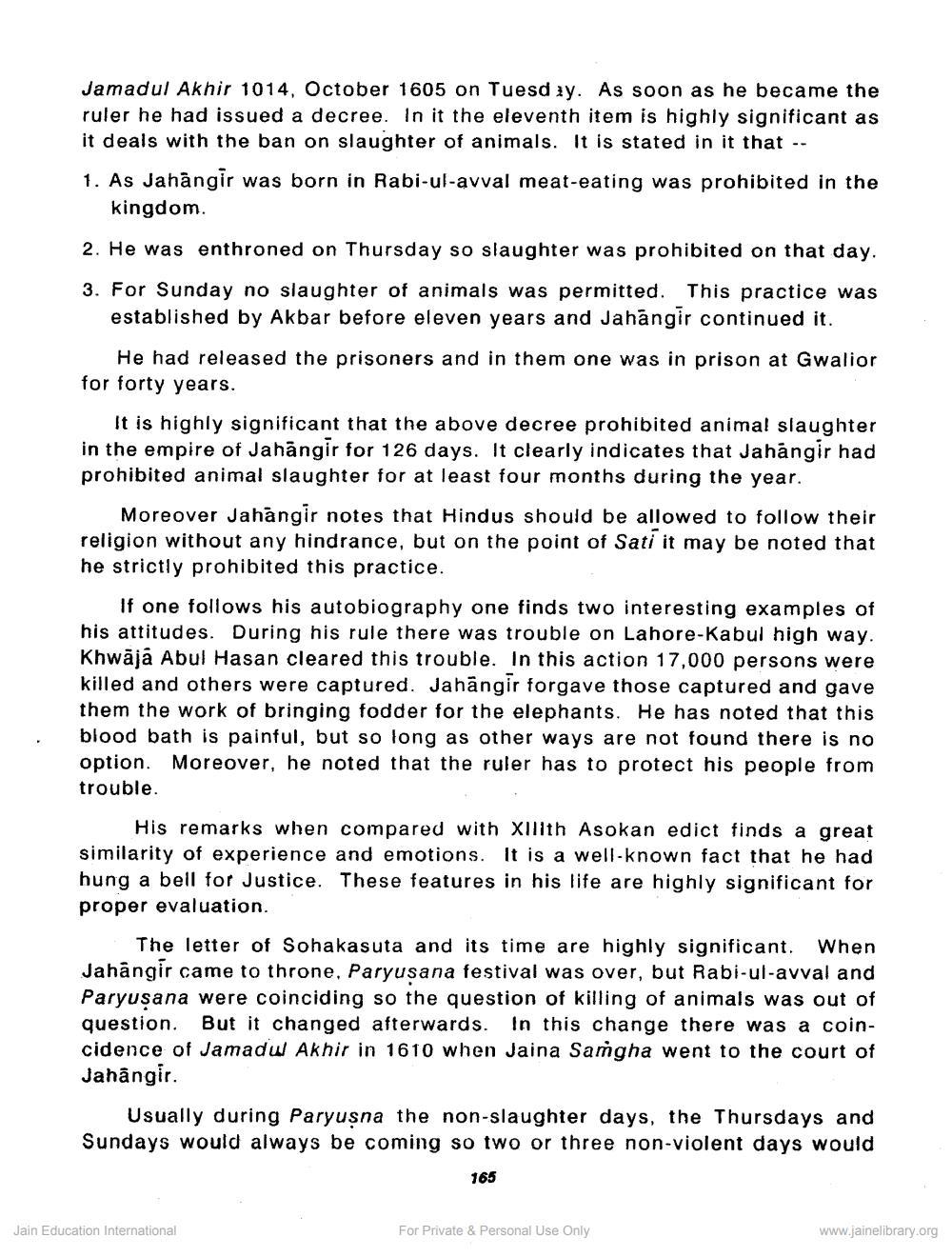Book Title: Jahangir and Non Violence Author(s): Ramanlal N Mehta Publisher: Z_Shwetambar_Sthanakvasi_Jain_Sabha_Hirak_Jayanti_Granth_012052.pdf View full book textPage 2
________________ Jamadul Akhir 1014, October 1605 on Tuesday. As soon as he became the ruler he had issued a decree. In it the eleventh item is highly significant as it deals with the ban on slaughter of animals. It is stated in it that -- 1. As Jahangir was born in Rabi-ul-avval meat-eating was prohibited in the kingdom 2. He was enthroned on Thursday so slaughter was prohibited on that day. 3. For Sunday no slaughter of animals was permitted. This practice was established by Akbar before eleven years and Jahangir continued it. He had released the prisoners and in them one was in prison at Gwalior for forty years. It is highly significant that the above decree prohibited animal slaughter in the empire of Jahangir for 126 days. It clearly indicates that Jahangir had prohibited animal slaughter for at least four months during the year. Moreover Jahangir notes that Hindus should be allowed to follow their religion without any hindrance, but on the point of Sati it may be noted that he strictly prohibited this practice. If one follows his autobiography one finds two interesting examples of his attitudes. During his rule there was trouble on Lahore-Kabul high way. Khwaja Abul Hasan cleared this trouble. In this action 17,000 persons were killed and others were captured. Jahāngir forgave those captured and gave them the work of bringing fodder for the elephants. He has noted that this blood bath is painful, but so long as other ways are not found there is no option. Moreover, he noted that the ruler has to protect his people from trouble His remarks when compared with Xilith Asokan edict finds a great similarity of experience and emotions. It is a well-known fact that he had hung a bell for Justice. These features in his life are highly significant for proper evaluation. The letter of Sohakasuta and its time are highly significant. When Jahangir came to throne, Paryusana festival was over, but Rabi-ul-avval and Paryusana were coinciding so the question of killing of animals was out of question. But it changed afterwards. In this change there was a coincidence of Jamadu Akhir in 1610 when Jaina Samgha went to the court of Jahangir. Usually during Paryusna the non-slaughter days, the Thursdays and Sundays would always be coming so two or three non-violent days would 165 Jain Education International For Private & Personal Use Only www.jainelibrary.orgPage Navigation
1 2 3
